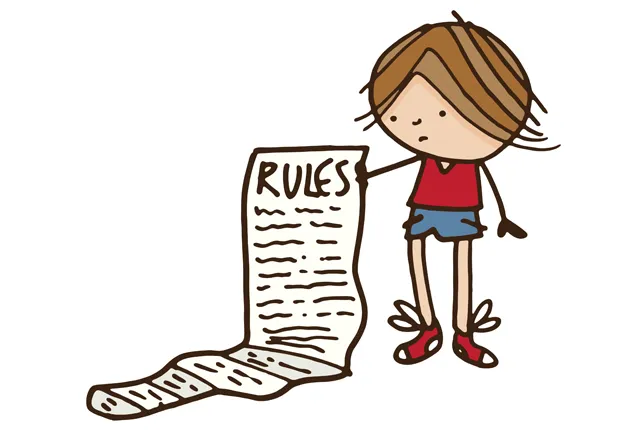Responsibility is one of the most important traits a person needs for a successful life. It should be formed from early childhood and, together with other important features, developed in the child.
We offer 3 life hacks that will gradually accustom the child to responsibility and give an understanding of its importance.
Family rules – the path to child responsibility
As a family, make a list of general rules that everyone needs to follow. You can prescribe and punishment in case of non-compliance, which should also apply to all. For example, the time allotted for watching TV, computer games, festivities with a dog, washing dishes, cleaning in common rooms… The list can be varied, depending on the life of the family.
The “uneven” distribution must be ready to be explained, for example, if a child can sit at the computer for 2 hours a day, and dad – 10 hours, then you need an understandable argument why this is so: dad works at a laptop, looks for the right things in the online store, etc., and not just “he is an adult and smart, and you are engaged in nonsense.”
Such a game with the rules is suitable for children of any age. The rules can be adjusted in accordance with the growing up of the child. Partly in a playful way, the child thus learns the distribution of responsibility, gets used to the fact that there are responsibilities and learns to interact.
Explanation of the consequences of actions and actions
Try to always explain to the child what a certain act will lead to. “You can’t because I said so” is an ineffective argument. The child must understand the consequence and possibly the danger.
The explanation must be reasonable and logical. “Mom’s tablet cannot be taken” not because she will scold, but because “this is her personal thing, which she has the right not to give to anyone, even if asked for it.” It is important that the explanations are two-sided, because the child also has the right not to give his personal belongings to anyone.
Right to error
If the consequence of the act is not direct harm to the child, then you should not categorically forbid something. Explain the possible consequences, help understand the advantages and disadvantages, and let them make a choice. Even if it is “wrong”, it will allow us to draw a conclusion for the future.
For example, if a child saved money for some kind of purchase, but without waiting for the required amount, wants to spend savings on something cheaper – explain that a smaller purchase will bring pleasure today, but if you wait a bit, then the pleasure will be more than what you have long wanted.

